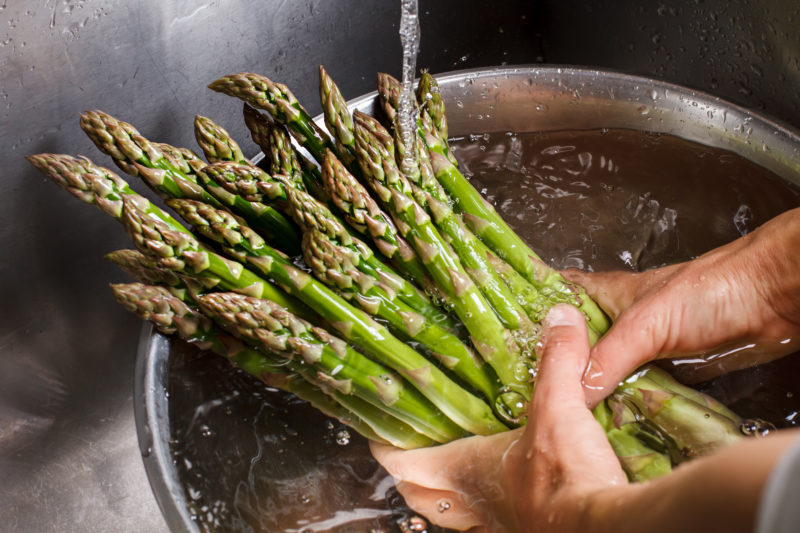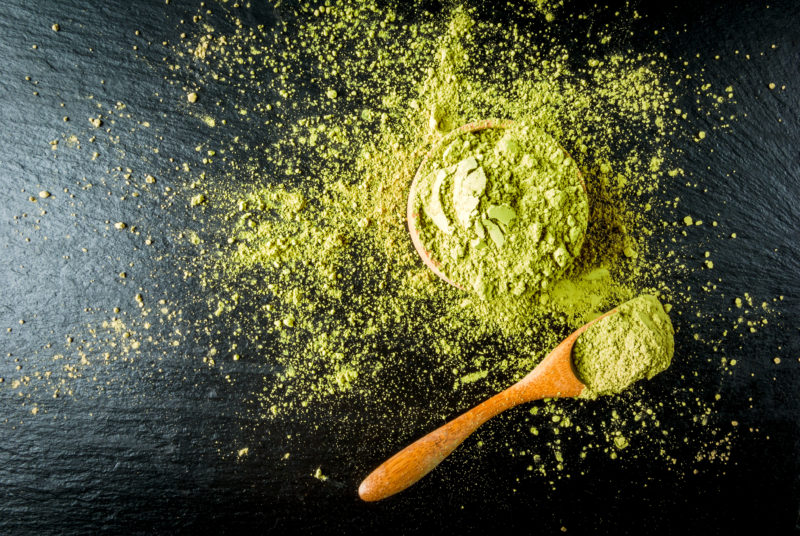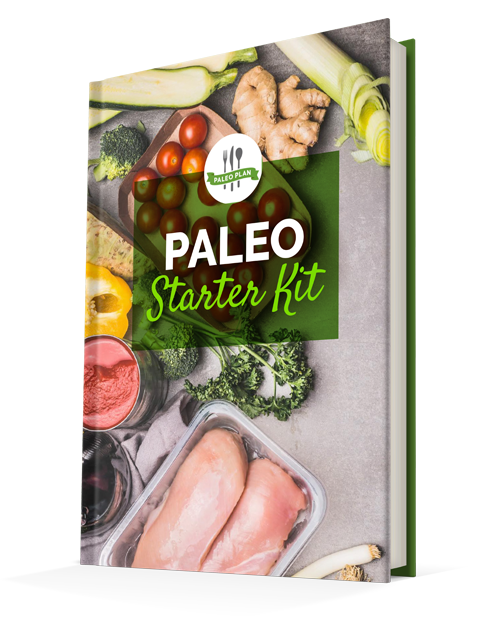Detoxing is a concept that seems to hold permanent space in the wellness and nutrition worlds. What is often misconstrued, however, is the fact that many different things are meant by this one word, “detox.” So what is detox really? Where should it fit into your healthy lifestyle? And how do you do it the right way?
Your Body Is Always Detoxing
Detoxing is something that is always happening, whether you’re aware of it or not. The body contains organs specifically devoted to removing waste and keeping our body as toxin-free as possible. The liver is the primary detox organ, but is supported also by the kidneys, intestines, lungs, and skin.
Detoxing happens when toxins are collected within the body and removed. This can happen through filtration via the blood and then elimination through the bladder, the colon, and even the skin through sweating.
The idea of needing to “do” a detox is one that is popularized by many wellness leaders in our culture, but the reality is that detoxing is always happening. Most commercial ideas for detoxes include highly restricted diets, reduced calories, specific food combinations, liquid-only diets, or supplement programs. While these can sometimes have positive impacts on the detox organs, the reality is that detoxing is so much simpler than these programs make it out to be.
Is Detoxing the Same As Cleansing and Clean Eating?

So we’ve already mentioned that detoxing is the involuntary process that specific body organs use to rid our bodies of toxins and other substances that find their way into our bodies from environmental and food sources. We can either help or hinder the detox process, but we aren’t really in control.
So how does “clean eating” differ from “cleansing,” and are either of them the same as detoxing? Yes, but mostly no.
Clean Eating
This is the simple act of eating food that is “clean,” which usually refers to organic, unprocessed foods. Paleo by nature is a clean eating diet from many viewpoints. Keep in mind, however, that there are numerous ways to define how food is actually “clean.” For example, vegetarians and vegans won’t consider Paleo clean eating, since it includes numerous animal products.
Clean eating is a vague term that doesn’t really have any direct bearing on your health. You can eat cleanly and still be taking in processed foods, foods you’re sensitive to, or foods that are not actually helping you meet your health goals.
Cleansing
This term is often used interchangeably with detoxing, however cleansing is actually something that we are in charge of. When someone decides to do a cleanse, they remove specific things from their diet, and they eat or drink foods or beverages that are aimed at having a cleaning effect.
When someone chooses to do a cleanse, they may remove stimulants, sugars, or other non-nutritive foods. They may also choose to eat foods or take supplements that will have a specific cleansing effect on the intestines and colon. However, the idea that we can force our bodies to detox as a result of a cleanse is a flawed one.
While you can definitely have total control over what you eat, even if you take laxative supplements and have a bunch of bowel movements in a single day, all you have done is poop a lot. You don’t actually know if your liver collected more toxins than normal and sent them on their way. In fact, you can’t really force the liver to work more quickly, although we can bog it down. This cleanse really just meant that the food we most recently ate exited the body faster than usual, which may have meant that the nutrients typically absorbed in the intestines during and after digestion weren’t extracted as thoroughly. Also, forced cleansing like this can upset the digestive tract, and can have a negative impact on the good bacteria that resides there, keeping us healthy.
Cleansing, Cleaning Eating, or Detoxing?

So you might be thinking that there isn’t any point to clean eating if the body does the detoxing entirely without you.
While I would say that clean eating is a vague statement and certainly not a requirement in and of itself, I would also say that you’re probably best to steer clear of forcing a cleanse onto your body.
As far as detoxing goes, we can hinder or we can help, and there are many ways that we can assist our detox pathways in doing their jobs. So while the body will always continue to detox whether we help it or not, our overall health will be best when we are aware of the process, and we understand that there are specific foods and nutrients that can make our bodies more efficient at taking out the trash.
Paleo and Detoxing
The Paleo diet is not one typically associated with detox. It includes meat, fat, and the opposite of calorie restriction. It focuses on nutrient dense meals and ditching artificial ingredients and highly processed foods. The fact is, Paleo is actually the most detox friendly food plan that there is because it specifically promotes the foods that naturally help to support the function of the detox organs.
While some who initially switch to a Paleo diet may experience the “dreaded detox,” most will quickly feel better than they ever have. By removing processed foods, grains, and refined sweeteners, people are actually doing their detox organs a bigger favor than they’ll ever know.
After we remove factors that can be a hindrance for our detox organs, we can also focus on specifically adding in the foods that actually help to promote natural, healthy detox.
10 Foods That Nourish Detox Outlets
Eating a basic Paleo diet can work wonders on a person’s health, and many detox-friendly foods are effortlessly worked into a Paleo meal plan. Keep an out for these foods that specifically nourish detox organs.
Asparagus

This stalky vegetable is rich in vitamin K and folate, and specifically nourishes the liver through both phases of detox. In phase one, toxins are collected and filtered from the blood. In phase two, these toxins are paired with molecules to prepare them for elimination. If phase one isn’t efficiently working, toxins will continue circulating through the bloodstream.
Dandelion
While not your typical Paleo vegetable, dandelion greens are widely available (make sure they’re not treated with weed-killing lawn chemicals!) and are rich in vitamins K, B1, and folate. They too support both phases of liver detox and also support healthy red blood cells thanks to iron.
Leafy Greens
Leafy greens like spinach, watercress, beet greens, romaine, and kale are all rich in vitamins A, C, and K that naturally support healthy blood and combat the damaging effects of toxins thanks to their antioxidant superpowers. They also support kidney function and protect them from damage, and help to promote proper and regular elimination via the colon thanks to fiber and roughage.
Matcha

This green tea powder is renowned for many things, and natural detox support should be at the top of the list. Matcha is rich in vitamin C and other antioxidants, and contains most of the B vitamins which help to nourish the nervous system and reduce inflammatory effects.
Onions
Any way you peel them, these tear-jerking root vegetables are super detoxifiers. They’re loaded with minerals like manganese and copper and they can actually bind with heavy metal toxins and help remove them from the body.
Garlic
While garlic may be an acquired taste for many, it’s such a rich source of vitamin C that it can be an effective natural cold remedy to eat it raw. While most won’t go that far, roasting garlic or tossing it in with recipes will give you added boosts of copper, selenium, and manganese along with vitamins C and B6.
Beets
Red beets are an up-and-coming popular Paleo food, and for good reason. They’re rich in manganese and potassium, full of fiber, and they’re great for reducing blood pressure, purifiying the blood, and increasing the ability of cells to take in more oxygen, making them antixoidant powerhouses.
Turmeric
The golden child of Paleo, turmeric is finding its way into all sorts of recipes, ranging from golden milk to flatbread to roasted cauliflower. It plays well with almost every flavor palate and it supports both phases of liver detox, along with kidney function, and being an overall potent anti-inflammatory ingredient.
Ginger
The cousin of turmeric when it comes to anti-inflammatory spices, ginger is also soothing for everything from nausea to headaches to other aches and pains. It supports digestive health, boosts metabolism, and helps keep the colon healthy.
Parsley

While most wouldn’t associate parsley with detox, it’s actually a great anti-inflammatory food that specifically supports bladder health thanks to high amounts of vitamins C and A, as well as folate and iron.
10 Non-Foods Ways To Support Natural Detoxing
While the foods you eat can have a dramatic impact on the effectiveness of your detox organs, there’s so much more to life than food alone. Chronic stress can contribute to inflammation that can decrease the effectiveness of our detox organs (and the whole body), so promoting relaxation and a calm mind through focused lifestyle choices can make or break your nourishing efforts.
Movement
Everyone knows that exercise is good for them, but did you know that your body’s organs actually work more effectively when regular movement is a part of your routine? Exercise and physical fitness isn’t just for fitting into smaller clothes or looking good, it’s literally essential for total body wellness and maintaining homeostasis, which is balance within the body.
Yoga, Pilates, barre exercise, and walking are all restorative fitness programs that not only promote wellness and physical fitness, but also relaxation and stress relief. CrossFit, strength training, swimming, jogging, and running are all also essential for total health as these increase the heart rate and help to move lymph throughout the body, aiding in the detoxing and cleansing process.
The most important aspect of movement, other than doing it regularly, is that it should also be enjoyable. We don’t often participate in things that we don’t enjoy, and the mental and emotional benefits of exercising in ways that are fun for us are dramatically increased.
Sunshine

Vitamin D is known as the sunshine vitamin because it has hormonal properties—it can literally be produced within our bodies as a response to skin exposure to direct sun rays.
Vitamin D is essential for immunity, mood, and hormone balance within the body, so it’s safe to say that it’s fairly essential for our total body wellness. Beyond the benefits of getting vitamin D, being outside in the fresh air and sunshine has many mental and emotional benefits that can’t be overlooked.
Meditation
Whether you do it indoors or outdoors, in a class or alone, religiously or not, taking quiet time to focus and calm your mind is going to produce healthful results within your body. Our thoughts create the energy that flows through our bodies, and that energy on a cellular level can influence our health, our nervous systems, our mood, our digestion, and more.
Even if you don’t believe in mystical “Energy,” all life at the cellular level is highly energetic. Everything that we are can be broken down into those tiny components, and meditation or quiet time can allow for us to refocus where and how our mental energy is impacting our physical energy.
Counseling
Seeing a counselor or attending therapy doesn’t mean that you’re weak, broken, or unstable. Whether you’ve been through something traumatic or difficult or not, living the human life will always have its difficulties and speaking to someone who is unbiased and who will confidentially listen to whatever is on your mind can be very freeing and cleansing.
To reap the benefits of counseling, you don’t even have to attend regularly, but allowing yourself the possibility of opening up when needed can do wonders for your total body wellness. We can never underestimate the value of not only being heard, but validated.
Creativity
If you make the rounds of social media circles, you’ve likely heard of the comeback of coloring and how it’s actually therapeutic for adults. The same is true for other creative outlets like journaling, composing, painting, drawing, writing, sewing, designing, photographing, cooking, and more.
Even if you don’t consider yourself to be a “creative” individual, you can still gain some serious emotional and mental benefits from having an outlet that allows you to think outside the box and utilize the right-brained creativity center of your mind. Since there’s no right or wrong way to create, this time should be spent free from judgment. This means if you want to color outside of the lines in your trendy coloring book, you certainly should, and if you want to color with markers that bleed through onto the next page, no one’s going to tell you that you’re doing it wrong.
Acupuncture

Many people have phobias of needles, and therefore they avoid acupuncture as a form of unconstitutional torture. The fact is that acupuncture needles are so very tiny that if you close your eyes you wouldn’t even know they were being used. Additionally, they barely touch the surface of your skin and certainly don’t leave needle marks when they’re removed. It’s as if they were never there.
Now that that’s out of the way, you should consider acupuncture as part of your detoxing and cleansing routine, even if you only go once a month, because it has some serious stress-reducing potential. Want to improve your fertility, sleep better, or fix digestive issues? Acupuncture can help with all of those, and more. It’s a great anxiety buster, too.
Skincare
The skin is the largest organ of the human body, and largely related to the removal of toxins via sweat. Exercise and saunas, both which give us the chance to perspire, are excellent regular habits for wellness, but you can also aid in cleansing by regular epsom salt soaks and dry brushing your skin.
Another way to care for your skin comes from removing all toxic body care products from your routine. It may seem trivial or unrelated, but by addressing the health of your skin, and removing toxic products that get absorbed through your skin, you’re actually reducing your body’s total toxin burden.
Massage
Who doesn’t love a good excuse to get a massage? Well, massage can actually be an important tool for helping the body to detox, repair, and restore. It can also stimulate blood flow to your organs and extremities. Even if you’re not keen on a total body massage, getting regular foot massages can help to address sleep issues, stress, and even digestion.
Laughter

It takes more muscles to form a frown on your face than it does to laugh, and yet these days it sure seems easier for most people to be unhappy than it is to be joyful. Even if you have to work at finding things to laugh at, time spent watching funny cat videos on YouTube, favorite TV show reruns on Netflix, or hilarious home videos is not wasted.
You should laugh every day, and often. Laughter is contagious and even when we aren’t in a good mood, can actually influence the energy within our bodies and can help to transform the cellular landscape within our bodies. Mind/body health is a legit science, and I think most of us can agree we’d rather be on a steady diet of laughter than refillable pharmaceutical prescriptions.
Digital Detox
Ahh, the age of technology. While the internet, smart phones, laptops, tablets, and the like have certainly done much to improve our quality of life, they’ve also equally degraded it. With all of the technology that we have that allows us to be better connected, we are becoming more isolated than ever.
Even if it’s not a permanent change, taking some time each week or month to be free from your cell phone, the internet, and any non person-to-person contact is something that is beneficial for your health on every level. Connect with the people in your life, focus on the present, and see what’s actually around you in the real world. Cyberspace will be there when you get back, but the moments you have with loved ones shouldn’t be taken for granted.
16 Recipes That Naturally Support Detox

If you’re not convinced that detox-friendly foods can be delicious, or you’re not sure how to naturally weave them into your life, try adding these to your weekly meal plan.
1. Beets and Berries Smoothie
2. Sweet Potato Turmeric Muffins
3. Asparagus with Mushrooms and Hazelnuts
4. Collard Greens
5. Turmeric Coconut Flour Muffins
6. Asparagus Salad
7. Matcha Smoothie Bowl
8. Butternut Squash Soup with Pears and Ginger
9. Sauteed Kale with Walnuts
10. Beet Soup with Coconut Milk
11. Carrot Noodles with Turmeric Pesto
12. Roasted Curried Cauliflower
13. Asparagus and Avocado Salad
14. Kale Salad with Chicken
15. Turmeric Chicken Noodle Soup with Zoodles
16. Ginger Turmeric Smoothie

